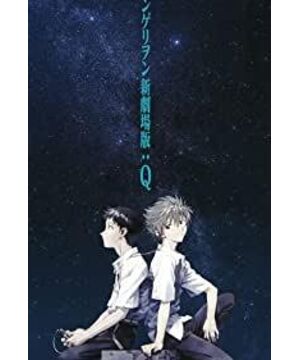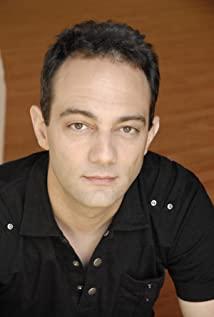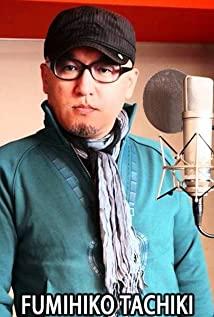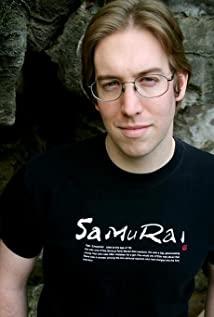Author: Why is the evaluation of Yingka Taro
so low, did you not understand the content of the film?
First, a premise needs to be clarified. The previous work "Broken" obviously did not "forward". The subtitle "YOU CAN (NOT) ADVANCE." also indicates this.
In the TV version, Shinji confronts Misato and clearly says "I won't drive an EVA again". Miri also said that it was a "proactive conversation".
Shinji in "Broken" turned his back to Misato, didn't even look at her, said "I won't smile to anyone again" and left.
In the TV version, Shinji showed a still not relieved expression, "standing" at the station listening to the evacuation alarm.
Shinji in "Broken" is the same as the fourth episode of the TV version "It's Raining, After Running Out", "sitting" in the tram and drifting with the flow.
Although Shinji in the TV version said "I have decided not to drive the EVA anymore", he still used "his own feet" to come to the field of blessing where he could clearly see the battle.
Shinji in "Broken" was "squatting" until the second plane crashed into the shelter.
The reason for the awakening of the first machine, in the TV version, is "I don't want to see anyone die again".
In "Broken", "It doesn't matter what the world turns into, at least Ayanami must be rescued", which led to a three-pronged attack and the world was on the verge of collapse.
"Broken" is not growth and progress, but a clear "regression".
The "14 years later" of "Q" is obviously the time since the release of the old theatrical version of "EOE" in reality. All the phenomena in the story imply that the situation is not as good as "Preface" and "Broken".
The situation suddenly changed, and compared to the people of Wille who had adapted to it, Shinji still planned to do "the same thing as 14 years ago".
I was told not to drive but I wanted to drive. I was advised not to do it but I wanted to do it.
Asuka's phrase "not an idiot but a kid" finally made the title of this work appear.
Watch out for Shinji's actions when he arrives at NERV.
I met Ayanami and hoped that she would read like before. Endless stacking of books.
After realizing that Ayanami ignored her, she "squatted" alone in the "empty hangar of the first aircraft."
Like a child who went there today because there were toys there yesterday, simple and non-positive behavior.
There is no intention to take the initiative to do something or change anything. I thought it would be good to just do the same thing.
After meeting Kaoru, this time he was sitting at the piano.
In this series of scenes, behind Shinji, the empty hangar of the No. 1 aircraft was reflected.
In Shinji's empty heart, the shadow of the first machine appeared from time to time.
Another important point of this work is the "loss" of Kaoru, who is as almighty as a god in the entire series.
He also alludes to the "repetition" of the new theatrical version, consciously doing the same thing as before.
"Practice over and over again. Repeat the same thing over and over again."
"Don't seek change, yearn for an abyss-like world of nothingness and coldness."
The two stars shining in the night sky symbolize the two of them.
Put on a protective suit and walk to a place that looks like the outside (?) of the headquarters, and explain the scene of the current state of the world.
Below the stairs that Shinji and the others were on was a "stairway of decay that could be seen, but could not be reached by any means."
Animation does not have the situation of "accidental shooting" like real shooting. Something in the picture must contain the intention of the director.
What this "alternative route" means, no need to explain.
Kaoru, who seems to know everything well, showed hesitation and embarrassment for the first time in "Q".
Kaoru in the TV version eventually became hostile to Shinji, which deeply hurt Shinji's heart.
And Kaoru in "Q" is very good to Shinji as he said, "At least this time I must make you happy".
The tone of assertion changed from "I may have been born to meet you" to a tone of assertion of "I was born to meet you".
Live together, drive the EVA together (but there is an invisible wall inside the plug), and talk to Shinji gently if the two of you can do it, and restore the world together.
But this is the wrong choice. "I'm sorry, this is not the happiness you expected," Kaoru said, and hurriedly disappeared.
Kaoru is different from the old work, always thinking of Shinji and dedicating everything to Shinji is touching.
Kaoru persuaded Shinji to stop, but Shinji hilariously wanted to draw a gun to restore the world, and then ran away.
The close-up of Shinji's eyes here is the same as the one in "Bring Ayanami back to me" in "Broken".
He had been able to do it successfully before, but this time it should be no problem--Shinji made such a very simple choice, refusing to listen to the advice around him and going his own way, of course, only tragedy awaited him.
It can be seen that this is a strong negation of "ヱヴァ" (new theatrical version) by repeating the famous scene that won the praise of the previous work to express "failure".
In the end, it was the "absolutely other" Asuka in the entire series, and Rei, who began to develop herself.
The insertion plug is a metaphor for the womb, and this completely private single room acts as the "room of the heart" throughout the series.
The grudged Toji enters and understands each other; after rescuing Ayanami and prying open her heart, Ayanami connects with others.
At the end of this work, Asuka, who is "absolutely others", easily gave up the second machine (mother) as persistent as in the old work in order to prevent Shinji.
Asuka, who was panting and forcibly pried open the plug, went inside casually, and took Shinji, who was sealed inside, outside.
In "Broken", Shiba boasted that "I don't rely on anyone" and "I can live alone", but at the beginning of "Q", I kept relying on others-"The four-eyed girl at the back door covers!", "Find a way for me. Ah idiot Shinji!". This is her growth.
For Ayanami, who was so annoying in the old work, she also taught her "what you want to do!".
Although Asuka is always scolding Shinji in this work, she never said the completely negative words such as "go to death" and "kill you" that appeared many times in the previous series.
Asuka's tenderness and affection for Shinji are fully reflected in the lines of a series of ending scenes and Yuko Miyamura's acting skills.
Just like Miri took Shinji's hand in "Preface", Asuka took Shinji's hand, and Ayanami followed behind.
"Ayanami Rei" who didn't do anything other than orders, picked up the Walkman that Shinji dropped...?
In the old series, Asuka, who rejected Shinji as an "absolute other" until the end, is leading these two hopelessly lost children.
The three walk in a red desert reminiscent of EOE. The ending of "EVA" basically cuts off the main film with the "to be continued" picture, and "Sakura Flow" invades the main film like "Soul Reincarnation", emphasizing "still continuing" The insertion method is also very beautiful.
How will Shinji, who has connected with others by driving an EVA, act after "no driving"?
The joy and distress for the director to continue the production of "EVA". The answer should be revealed in the next installment.
When I first saw this film, I really felt the same as Shinji's. I felt that the explanation was obviously insufficient, and I felt like I was left behind.
The protagonist is the most useless one, and this kind of composition is really unpleasant.
After losing the previous composition of "humans to apostles" and the description of large-scale organizational operations, the sense of scale of the battle, the high atmosphere, and the entertainment as a heroic movie have indeed declined significantly.
But I admire the sequel so well thought out.
After watching "Q" and then revisiting "Preface" and "Broken", after reaching a certain extreme "EOE", the too orthodox "Preface" and "Broken" full of action scenes and explicit service scenes, for Although the new theatrical version is a new work, there are quite a few parts that are not in line with the times.
Taking advantage of this "Urashima Taro-like feeling" and the elapsed time in reality, the approach of "Q" to the audience is not surprising if you reconsider it, but rather it makes people feel that it was there from the beginning. Purpose.
"Q" is an important work, connecting the new theatrical version, which is located elsewhere in the old series, on the same horizon as "EOE".
Existing here, after accepting these 14 years, I was finally able to see the whereabouts of the story.
The title of the next part changed from "ヱヴァ" back to "エヴァ", from which we can also see the role of "Q".
When I first saw it, I felt left behind, and it didn't matter if I didn't know what to say.
But it's a pity to call it a "bottom work" without understanding the meaning of it.
Other comments said that this work cut corners and hastily, but have you ever thought about it, it has gathered experienced people who have produced many similar works, hired a number of directors, and we continue to explore together, it will be so simple Does it "fail"? This is after "Broken" easily showed the "kingdom".
I think that explanation is unreasonable. This is not a series made by a young director on his own.
To be honest, I didn't understand it when I first watched it, but after rethinking it, when I watched it a second time, I was convinced of my current point of view.
It's by no means an inexplicable movie, rather each scene contains a very clear intent.
There aren't any useless parts, it's actually a more action-packed entertainment than "Broken" (almost all action except the NERV part).
People with different positions bet on their own wishes and ambitions, and do their best to make actions. This is the biggest difference between this work and "EOE". In "EOE", everyone belongs to the same organization and was played by Yuandu, and finally ushered in a unilateral tragic ending.
"Q" is not a complete follow-up of "Broken", nor is it the second coming of "EOE".
While developing the new plot, it also covers the old works, and gradually moves to the climax of the new theatrical version that no one knows about.
I hope that everyone can take the opportunity of the disc release to re-recognize the truth of the work "Q".
This is a masterpiece.
View more about Evangelion: 3.0 You Can (Not) Redo reviews








